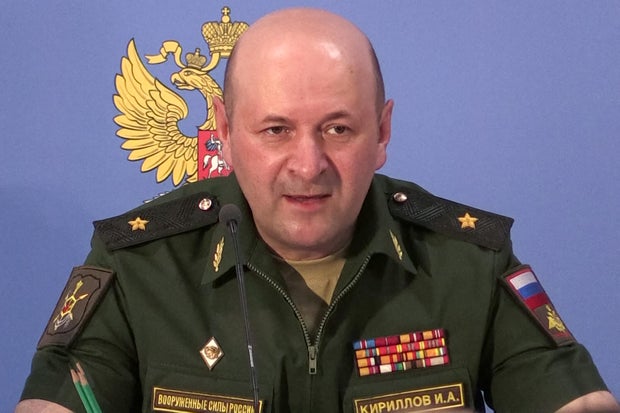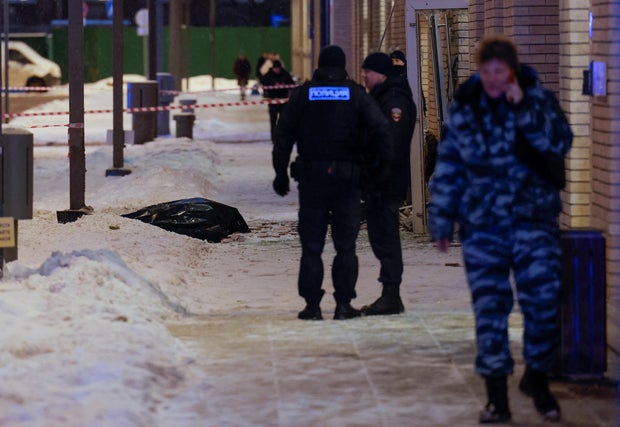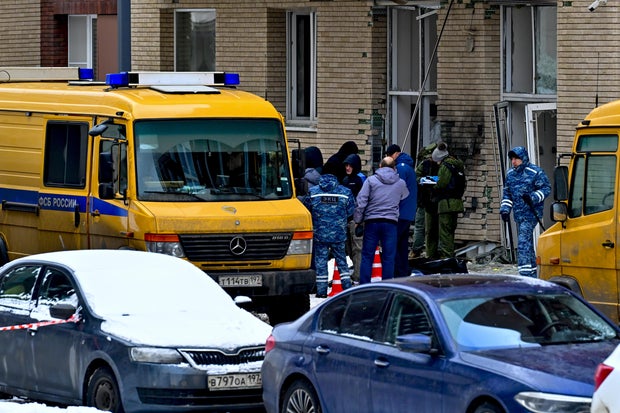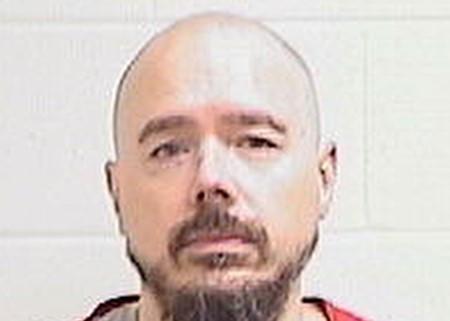CBS News
23andMe faces an uncertain future. Here’s how to delete your DNA data while you can.
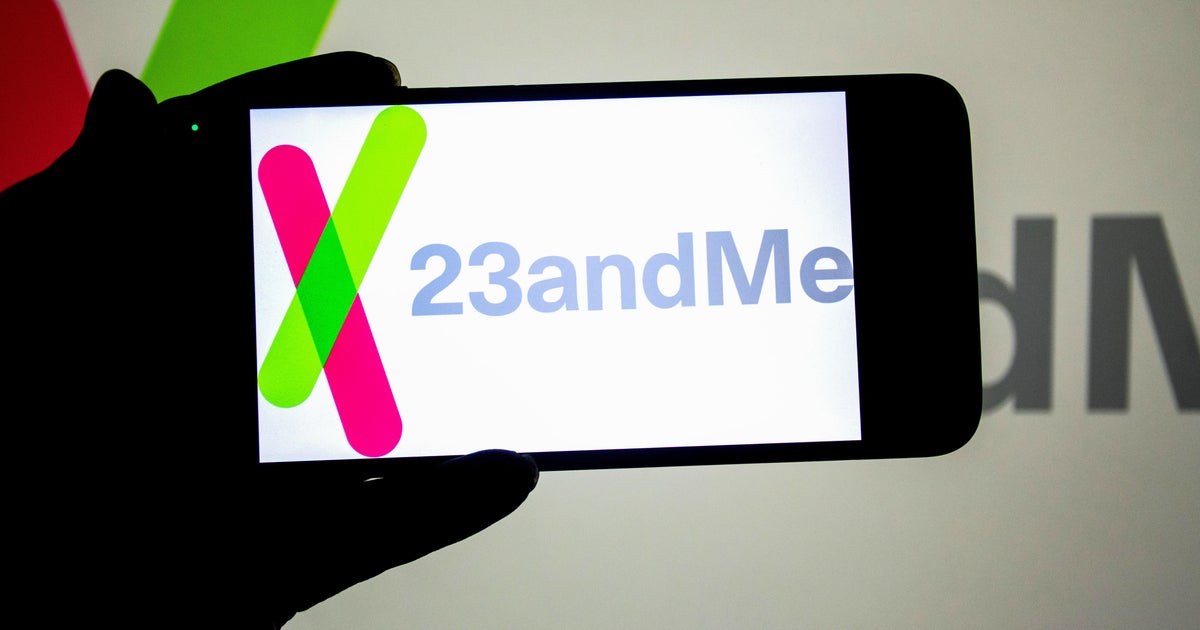
23andMe, a genetic-testing and ancestry-tracing company, collects the most personal kind of data from its customers: their DNA.
Now, after a data breach in late 2023 and a full board resignation, the company faces an uncertain future, and many customers believe the genetic information they once willingly handed over could be vulnerable. CEO Anne Wojcicki has also previously said she’d consider a potential takeover of the company, which has raised concerns among customers about what would happen to their data in the event of a sale.
Wojcicki later clarified that she is not considering third-party takeover proposals, and that she intends to take the company private.
“Anne also expressed her strong commitment to customer privacy, and pledged to maintain our current privacy policy, including following the intended completion of the acquisition she is pursuing,” 23andMe said in a statement to CBS MoneyWatch.
In a social media post on X earlier this month, Eva Galperin, director of cybersecurity at Electronic Frontier Foundation (EFF), suggested that 23andMe account holders take steps to delete data held by the company.
“If you have a 23andme account, today is a good day to log in and request the deletion of your data,” she wrote.
Other cybersecurity experts reinforce that users’ data is no more vulnerable today in the midst of company turmoil, but that all 23andMe customers should review its privacy policies and consider how and with whom they want to share their data.
Is my data safe?
Galperin and other cybersecurity experts are recommending that account holders take steps to protect their data, including by deleting their 23andMe accounts.
“A lot of people are focused now because of concern over a potential change in ownership,” genetic privacy expert University of Iowa law professor and genetic privacy expert Anya Prince told CBS MoneyWatch. “But the data is no more vulnerable today than it was for however 23andMe has been going on.”
In addition to sharing their data with 23andMe, customers have always had the ability to consent to 23andMe sharing their de-identified genetic information with third parties, for a variety of purposes, including to advance medical research. “It could, however, potentially be identifiable because genetic data is so unique. So there are vulnerabilities, but they’re not necessarily unique to where 23andMe is right now,” Prince added.
What can someone do with my genetic data?
One’s genetic information reveals a lot about their family’s and their own health. “So if someone had access to that information, and they could identify you, they could learn something about your health,” Prince said.
Conceivably, a drugmaker could better tailor its advertising to individuals, for example.
“It might be innocuous, as in you’d be marketed products for diabetes if you have a predisposition. It could be annoying but not harmful,” she explained.
23andMe said that roughly 80% of its customers consent to participate in the company’s research program, which it said has generated more than 270 peer-reviewed publications uncovering new genetic insights into disease.
“Some people aren’t happy about the sharing that’s happening. They don’t want their information to go to companies in order for them to advance their research because they might say, ‘I paid 23andMe for genetic testing and they’re making money, and drug companies are making money off my data.’ That might feel like a personal affront,” Prince said.
Can I delete my data?
An individual account holder can request a deletion of their genetic information under the terms of 23andMe’s privacy policy.
“You have the ability do download data and delete your account if you’re no longer interested,” Prince explained.
If you’ve already agreed to the company sharing your data in a de-identified manner for research purposes, however, you can reverse that consent, but cannot retract data that’s already been shared. “You can’t find it at whatever pharmaceutical companies it’s already been shared with, because it doesn’t have a person’s name attached to it. So there’s nothing to be done there,” Prince said.
The process for deleting one’s data from 23andMe’s database is automated and straightforward.
“If, at any time, you are no longer interested in participating in our Services, you may delete your 23andMe account directly within your Account Settings,” the company states on its website.
That requires you to login to your account and submit a request. The company then emails you a data deletion request confirmation, which you must verify. The deletion process then begins.
Jason Kelley, activism director at EFF, urges people to “think very carefully about how much data they are giving away when they use a service like this.”
He noted that few people if any, within his own organization have used the ancestry-tracing service.
“In general, sharing data like this with any third party is something people should take seriously,” he said. “For a long time, people have not known what information they were giving away and how it was used and people becoming more aware of how their information can be used or it can be dangerous if there is a data breach.”
The company’s stock, which in 2021 traded for more than $16, closed Monday at 29 cents.
CBS News
Russia says suspect detained in killing of Gen. Igor Kirillov, head of Russian chemical weapons unit

Moscow — Russia’s security service said Wednesday that it had detained a suspect in the killing of a senior general in a Moscow bomb blast. The suspect was described as an Uzbek citizen whom the agency said had been recruited by Ukrainian intelligence services.
Ukrainian security sources told CBS News on Monday that the Security Service of Ukraine (SBU) was behind the explosion that killed Lt. General Igor Kirillov. The claim couldn’t be independently verified, but Russian officials quickly vowed to take revenge against Ukraine’s leaders.
Russia’s Federal Security Service didn’t name the suspect, but it said he was born in 1995. According to an FSB statement, the suspect said he was recruited by Ukrainian special services.
AFPTV / AFP via Getty Images
“Kirillov was a war criminal and an absolutely legitimate target, since he gave orders to use prohibited chemical weapons against the Ukrainian military,” an informed source in the SBU asserted to CBS News. “Such an inglorious end awaits everyone who kills Ukrainians. Retribution for war crimes is inevitable.”
Kirillov was killed by a bomb hidden in an electric scooter outside his apartment building in Moscow, a day after Ukraine’s security service leveled criminal charges against him. His assistant also died in the attack.
The FSB said the suspect had been promised a reward of $100,000 and permission to move to a European Union country in exchange for killing Kirillov. It said that, acting on instructions from Ukraine, the suspect traveled to Moscow, where he picked up a homemade explosive device. He then placed the device on an electric scooter and parked it at the entrance of the residential building where Kirillov lived.
The suspect then rented a car to monitor the location and set up a camera that livestreamed video from the scene to his handlers in the central Ukrainian city of Dnipro. When Kirillov was seen leaving the building, the suspect detonated the bomb.
According to the FSB’s statement, the suspect faces “a sentence of up to life imprisonment.”
Kirillov, 54, was the chief of the Russian military’s radiological, biological and chemical protection forces. Either Kirillov himself or his military unit were sanctioned by several countries, including the U.S., Britain and Canada, for the alleged use of chemical weapons on the battlefield in Ukraine. On Monday, Ukraine’s SBU had opened a criminal investigation against him, accusing him of directing the use of banned chemical weapons.
Maxim Shemetov/REUTERS
Ukraine’s SBU has said it recorded more than 4,800 occasions when Russia used chemical weapons on the battlefield since President Vladimir Putin launched his full-scale invasion in February 2022. In May, the U.S. State Department announced sanctions against Kirillov’s unit, saying the U.S. had recorded the use of chloropicrin, a poison gas first deployed in World War I, against Ukrainian troops.
Russia has denied using any chemical weapons in Ukraine and, in turn, has accused Kyiv of using toxic agents in combat, and Kirillov was allegedly behind the spread of that propaganda.
Kirillov, who had been in his post since April 2017, was accused by the U.S. government of helping to spread disinformation about biological weapons and research.
In March 2023, about a year into Russia’s full-scale invasion, the U.S. State Department said Kirillov had “significantly increased his media engagement” to issue repeated, baseless claims that the U.S. government had been involved in creating both the mpox virus and COVID-19, and that the U.S. “is developing biological weapons able to selectively target ethnic groups.”
“The U.S. Government is concerned that this false narrative may be a prelude for a false-flag operation, where Russia itself uses biological, chemical, or nuclear weapons in Ukraine, and then attempts to blame it on Ukraine and/or the United States,” the State Department said at the time.
Sefa Karacan / Anadolu via Getty Images
The bomb used in Tuesday’s attack was triggered remotely, according to Russian news reports. Images from the scene showed shattered windows and scorched brickwork.
Russia’s top state investigative agency said it’s looking into Kirillov’s death as a case of terrorism, and officials in Moscow vowed to punish Ukraine.
CBS News
Suspect detained in killing of Gen. Igor Kirillov, head of Russia’s biological, chemical forces in Moscow blast

Moscow — Russia’s security service said Wednesday that it has detained a suspect in the killing of a senior general in Moscow.
The suspect was described as an Uzbek citizen recruited by Ukrainian intelligence services.
Russia’s Federal Security Service, or FSB, didn’t name the suspect, but said he was born in 1995. According to an FSB statement, the suspect said he was recruited by Ukrainian special services.
Ukrainian security sources had told CBS News Monday that the Security Service of Ukraine (SBU) killed Kirillov in a special operation. The claim couldn’t be independently verified, but Russian officials quickly vowed to take revenge against Ukraine’s leaders.
AFPTV / AFP via Getty Images
Lt. Gen. Igor Kirillov was killed Tuesday by a bomb hidden in a scooter outside his apartment building in Moscow, a day after Ukraine’s security service leveled criminal charges against him. His assistant also died in the attack. A Ukrainian official said the service carried out the attack.
The FSB said the suspect had been promised a reward of $100,000 and permission to move to a European Union country in exchange for killing Kirillov.
The agency stated that, acting on instructions from Ukraine, the suspect traveled to Moscow, where he picked up a homemade explosive device. He then placed the device on an electric scooter and parked it at the entrance to the residential building where Kirillov lived.
The suspect then rented a car to monitor the location and set up a camera that livestreamed footage from the scene to his handlers in the central Ukrainian city of Dnipro. Once Kirillov was seen leaving the building, the suspect detonated the bomb.
According to the FSB’s statement, the suspect faces “a sentence of up to life imprisonment.”
Kirillov, 54, was the chief of the military’s nuclear, biological and chemical protection forces and was under sanctions from several countries, including the U.K. and Canada, for his actions in Moscow’s military operation in Ukraine. On Monday, Ukraine’s Security Service, or SBU, opened a criminal investigation against him, accusing him of directing the use of banned chemical weapons.
Russia has denied using any chemical weapons in Ukraine and, in turn, has accused Kyiv of using toxic agents in combat.
Kirillov, who took his current job in 2017, was one of the most high-profile figures to level those accusations. He held numerous briefings to accuse the Ukrainian military of using toxic agents and planning to launch attacks with radioactive substances – claims that Ukraine and its Western allies rejected as propaganda.
The bomb used in Tuesday’s attack was triggered remotely, according to Russian news reports. Images from the scene showed shattered windows and scorched brickwork.
Sefa Karacan / Anadolu via Getty Images
Russia’s top state investigative agency said it’s looking into Kirillov’s death as a case of terrorism, and officials in Moscow vowed to punish Ukraine.
CBS News
Indiana conducts first execution in 15 years, puts quadruple killer to death

Michigan City, Indiana — An Indiana man convicted of killing four people including his brother and his sister’s fiancé decades ago was put to death Wednesday, without any independent witness, marking the state’s first execution in 15 years.
Joseph Corcoran, 49, was pronounced dead at 12:44 a.m. CST at the Indiana State Prison in Michigan City, Indiana, the Indiana Department of Correction said in a statement. CBS Indianapolis affiliate WTTV reports that officials said the execution process started just after midnight.
Indiana Department of Corrections via AP
Corcoran was scheduled to be executed with the powerful sedative pentobarbital, but the state agency’s statement did not mention that drug. Corcoran’s execution was the 24th in the U.S. this year.
According to WTTV, the statement said Corcoran told officials his last words were, “Not really. Let’s get this over with.”
He was convicted in the July 1997 shootings of his brother, 30-year-old James Corcoran, his sister’s fiancé, 32-year-old Robert Scott Turner, and two other men, Timothy G. Bricker, 30, and Douglas A. Stillwell, 30.
According to court records, before Corcoran fatally shot the four victims he was under stress because the forthcoming marriage of his sister to Turner would necessitate moving out of the Fort Wayne, Indiana, home he shared with his brother and sister.
While jailed for those killings, Corcoran reportedly bragged about fatally shooting his parents in 1992 in northern Indiana’s Steuben County. He was charged in their killings but acquitted.
Last summer, Gov. Eric Holcomb announced plans to resume state executions following a yearslong hiatus marked by a scarcity of lethal injection drugs nationwide.
The state provided limited details about the execution process, and no media witnesses were permitted under state law.
Indiana and Wyoming are the only two states that do not allow members of the media to witness state executions, according to a recent report by the Death Penalty Information Center.
Corcoran’s attorneys had fought his death penalty sentence for years, arguing he was severely mentally ill, which affected his ability to understand and make decisions. This month, his attorneys asked the Indiana Supreme Court to stop his execution but the request was denied.
Corcoran exhausted his federal appeals in 2016. But his attorneys asked the U.S. District Court of Northern Indiana last week to stop his execution and hold a hearing to decide if it would be unconstitutional because Corcoran has a serious mental illness. The court declined to intervene Friday, and the U.S. Court of Appeals for the 7th Circuit did the same Tuesday.
Corcoran’s attorneys then asked the U.S. Supreme Court issue an emergency order halting his execution, but the high court denied their request for a stay late Tuesday, ending Corcoran’s options with the courts.
His sole remaining hope then became Holcomb, who could have commuted Corcoran’s death sentence. But that commutation never came and the execution proceeded as scheduled.
WTTV says Holcomb issued a statement saying Corcoran’s case “has been reviewed repeatedly over the last 25 years – including 7 times by the Indiana Supreme Court and 3 times by the U.S. Supreme Court, the most recent of which was tonight. His sentence has never been overturned and was carried out as ordered by the court.”
Indiana’s last state execution was in 2009 when Matthew Wrinkles was put to death for killing his wife, her brother and sister-in-law in 1994.
Since then, 13 executions were carried out in Indiana, but those were initiated and performed by federal officials in 2020 and 2021 at a federal prison in Terre Haute.
State officials have said they couldn’t continue executions because a combination of drugs used in lethal injections had become unavailable.
For years, there has been a shortage across the country because pharmaceutical companies have refused to sell their products for that purpose. That’s pushed states, including Indiana, to turn to compounding pharmacies, which manufacture drugs specifically for a client. Some use more accessible drugs such as the sedatives pentobarbital or midazolam, both of which, critics say, can cause intense pain.
Religious groups, disability rights advocates and others have opposed his execution. About a dozen people, some holding candles, held a vigil late Tuesday to pray outside the prison, which is surrounded by barbed wire fences in a residential area about 60 miles east of Chicago.
“We can build a society without giving governmental authorities the right to execute their own citizens,” said Bishop Robert McClory of the Diocese of Gary, who led the prayers.
Other death penalty opponents also demonstrated outside the prison Tuesday night, some holding signs that read “Execution Is Not The Solution” and “Remember The Victims But Not With More Killing.”
“There is no need and no benefit from this execution. It’s all show,” said Abraham Borowitz, director of Death Penalty Action, his organization that protests every execution in the U.S.
Prison officials said in a brief statement Tuesday evening that Corcoran “requested Ben & Jerry’s ice cream for his last meal.”
Corcoran said farewell late Tuesday to relatives, including his wife, Tahina Corcoran, who told reporters outside the prison that they discussed their faith and their memories, including attending high school together. She reiterated her request for Indiana’s governor to commute her husband’s death sentence.
Tahina Corcoran said her husband is “very mentally ill” and she didn’t think he fully grasped what was happening to him.
“He is in shock. He doesn’t understand,” she said.


